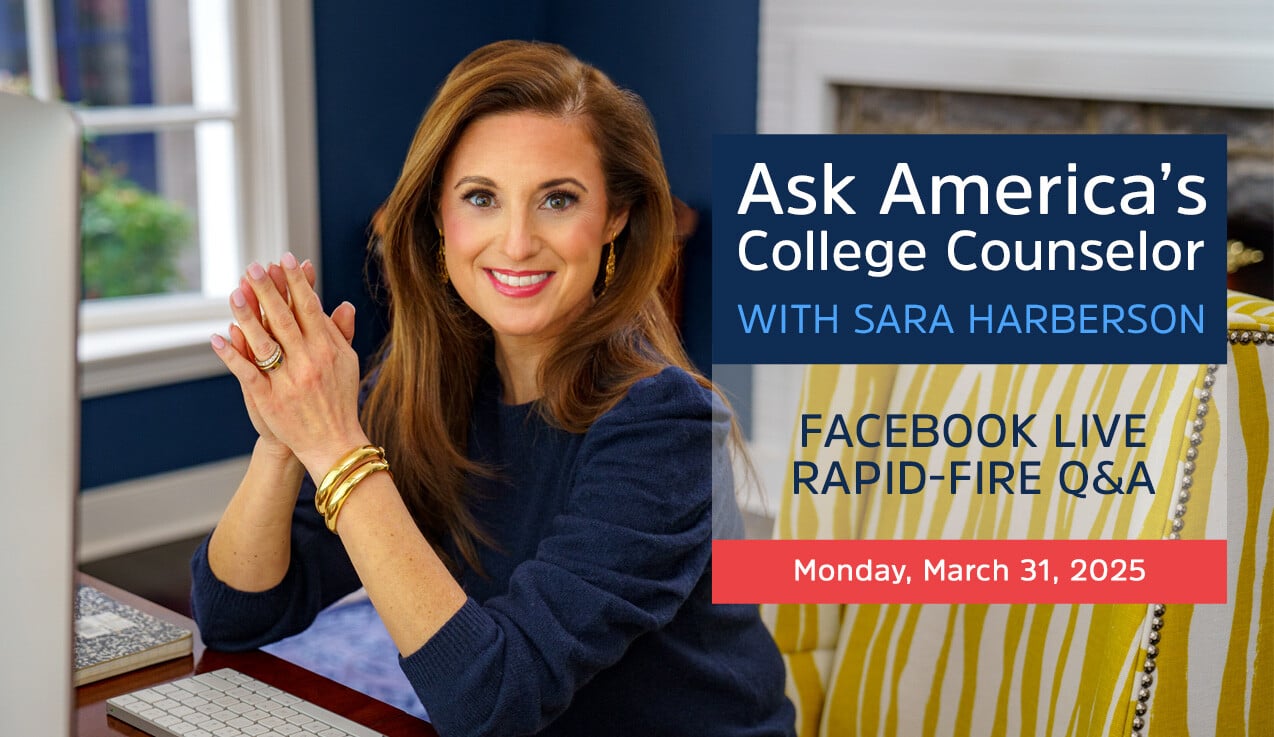It's that time of year. Newly minted second semester juniors finally get assigned their college counselor. All of a sudden, the college admissions process feels more imminent.
First up, a meeting with your college counselor—if you are lucky, of course. Here are some things to consider going into this meeting:
1. Sometimes it's the only official meeting you have with your college counselor before senior year.
If that's the case, you will want to use email and any additional interaction to convey who you are and what you want out of this process. The college counselor not only writes a letter of recommendation for you, but is supposed to be your advocate throughout the process.2. Parents and the student are often asked to be in attendance at this meeting.
RELATED READING: What Parents Can and Can't Do for College Admissions
3. These meetings can be short, especially at a large public school.
4. Your major and college list do not need to be finalized at this point.
In fact, both could change by the time you apply to college in the fall. But you want to be ready to talk about yourself, academically, extracurricular-wise, and personally.
5. In some cases, the college counselor will ask you (the parents and/or the student) to fill out a form in advance to get to know you.
Ask if this form will be used to help them write a letter of recommendation when the time comes. If so, this form carries more weight than what it initially appears.
6. Be ready to discuss which teachers you might want to ask for letters of recommendation and what classes you are considering taking next year.
RELATED READING: Why You Should Follow My 5-4 Plan for Course Selection
7. Ask about school resources in helping a student put together a college list.
While Naviance and other college counseling platforms can be helpful, they don't provide context or nuance. Getting your college counselor's perspective on the college list can be helpful.8. Find out if there are any restrictions on the number of colleges you can apply to and when they need to be submitted by for the college counselor to have enough time to send school materials by the deadline.
Some high schools have strict limits on the number of applications. They also sometimes require several weeks' notice that the student is applying, which can be tricky around the deadlines.
9. You might want to ask if the college counselor helps with editing essays or reviewing applications.
Most of the time, especially at a large public school or a high school with limited resources, this is not offered. At least you will know and can plan accordingly.
10. If anything changes—your intended major, list of colleges, preferences—make sure you tell your college counselor in writing.
What you want right now could very well change by next year. You want your college counselor to be as up to date as possible. Just imagine if you initially indicated you wanted to apply to undergraduate business programs in the spring of junior year, yet by the fall of senior year you changed your mind. Your letter of recommendation from your college counselor will say one thing and your application will say something else.Related Reading: 5 Ways to Work with Your School's College Counselor
If you don't get a chance to meet with your college counselor or your time is limited, you can share aspects of your life, background, and interests via email. When students put their thoughts in writing, the college counselor can refer back to that before they write a letter of recommendation or advocate for you in the college admissions process. In the end, you want your college counselor to understand you so that they can convey that to colleges.











